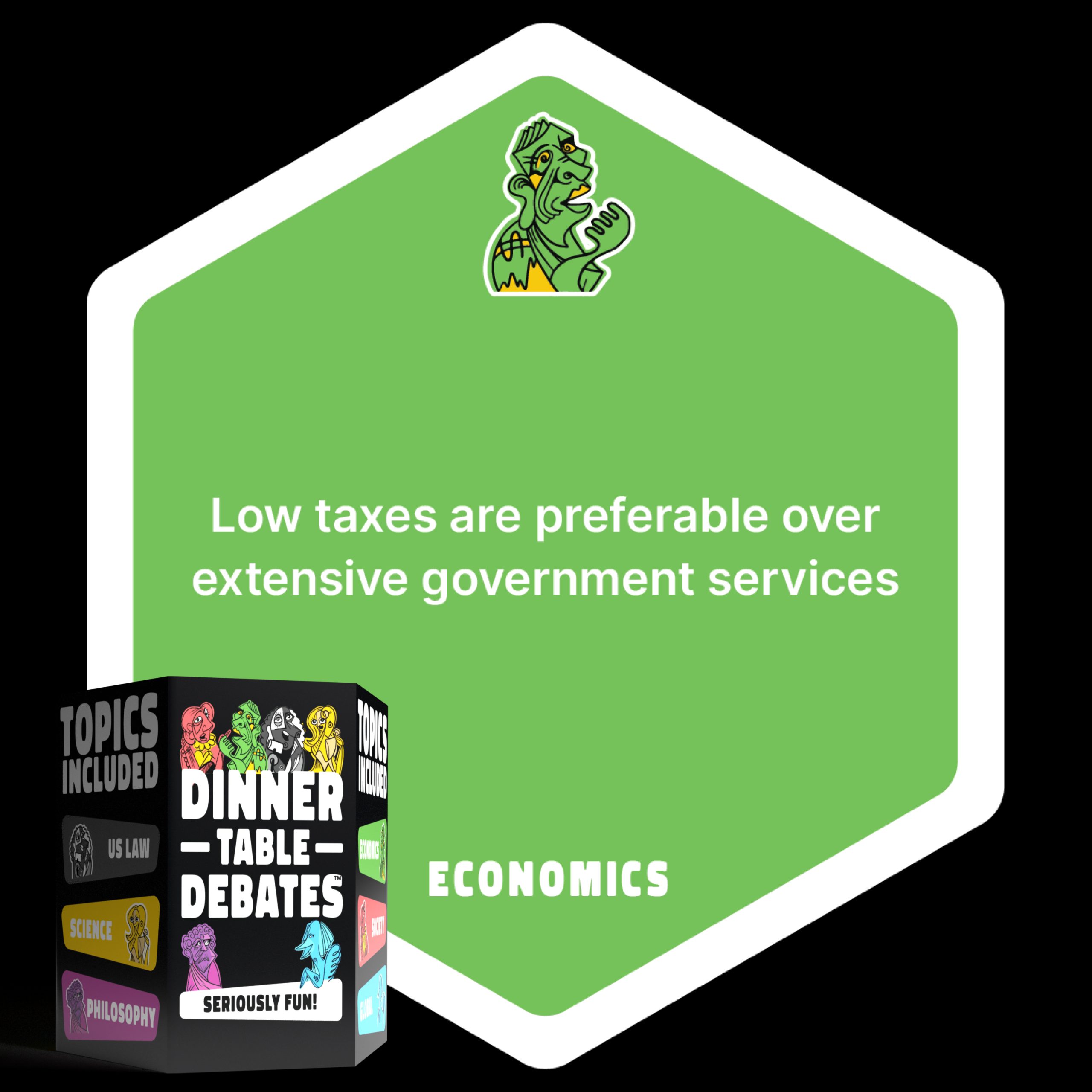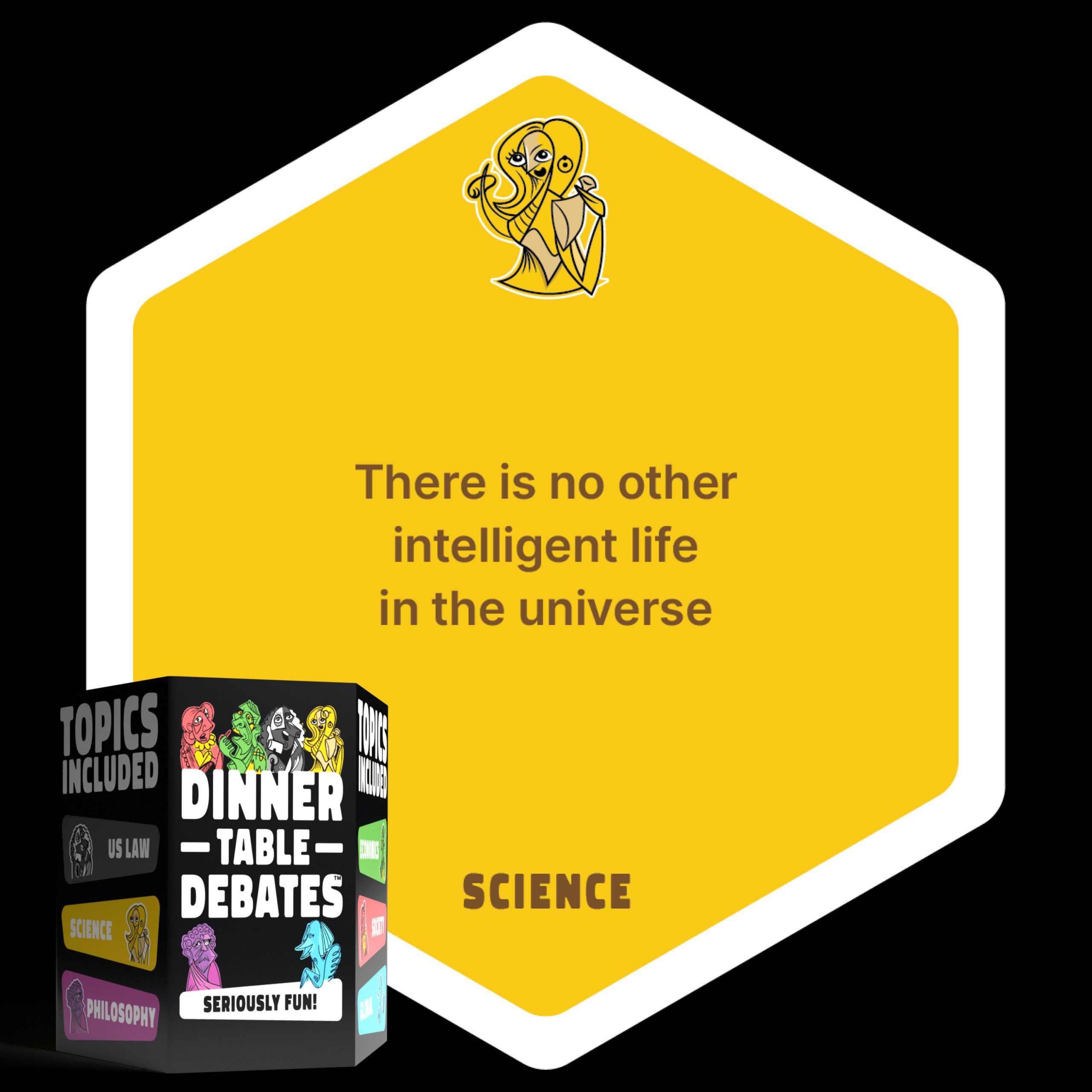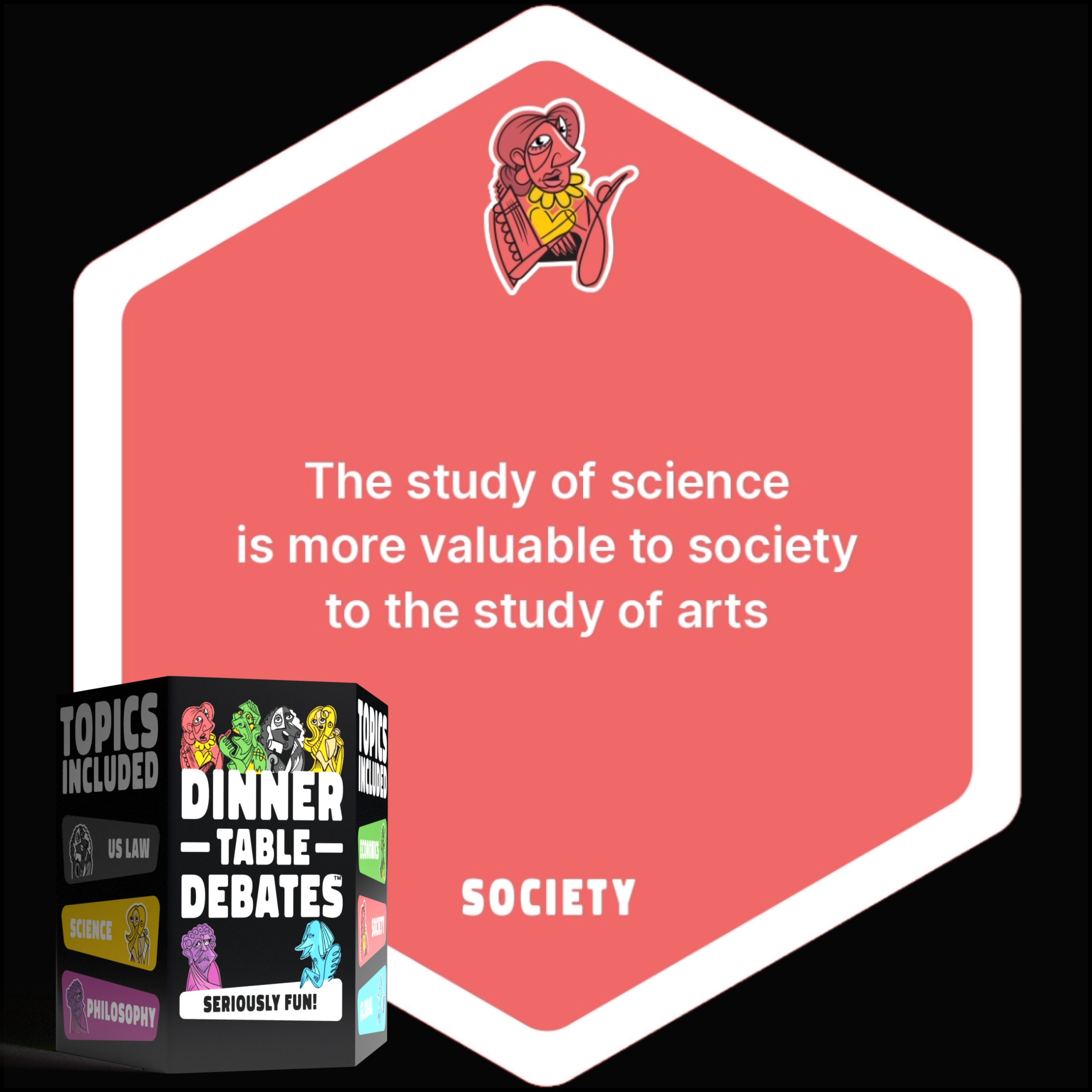Remember the moment when NFL quarterback Colin Kaepernick took a knee during the national anthem, sparking a nationwide debate? His protest against police brutality and racial injustice led to intense discussions about the role of athletes in activism and the boundaries of political expression in sports. If your favorite player did something similar, would you support their stance, or think politics should stay off the field?
Welcome to your Dinner Table Debates Daily Deep Dive, where we explore real topics from our decks and give you everything you need to debate, in under 10 minutes. Today's topic is "Boycotts and protests during sporting events are a legitimate political tool," and it comes from the Society Category in our Full Size Essentials Collection deck. Let's dig in.
Sports have always been more than just games; they’re a reflection of society, culture, and sometimes, the battleground for political and social issues. The idea of using sporting events as a platform for protest isn’t new. It dates back to ancient times when athletes were symbols of city-states' prowess and prestige.
In the modern era, we’ve seen iconic moments where sports and politics intersect. The 1968 Olympics is a prime example, where American sprinters Tommie Smith and John Carlos raised their fists in a Black Power salute during the medal ceremony, drawing attention to racial inequality. Fast forward to more recent times, and we have NFL quarterback Colin Kaepernick kneeling during the national anthem to protest police brutality and racial injustice. These acts sparked widespread debate about the role of athletes in political discourse.
Historically, the Olympic Games have been a frequent site of political boycotts. For instance, in 1980, the United States led a boycott of the Moscow Olympics to protest the Soviet invasion of Afghanistan, with over 60 countries joining. Four years later, the Soviet Union and its allies boycotted the Los Angeles Olympics in retaliation.
These protests and boycotts often stir controversy, but they undeniably bring attention to the issues at hand. The debate about their legitimacy as political tools revolves around whether sporting events should remain a neutral space for entertainment or if they are an appropriate venue for political expression.
This topic is especially relevant today as we see a growing number of athletes and teams using their platforms to speak out on social and political issues. From racial injustice to human rights violations, these protests bring critical issues to a global audience, leveraging the massive reach and influence of sports. Understanding this debate helps us consider the role of public figures in activism and the impact of mixing sports with politics.
Now, let’s debate.
Agree: Boycotts and protests during sporting events are a legitimate political tool. Sporting events draw massive audiences, making them powerful platforms to raise awareness. By staging protests or boycotts, athletes and organizers can bring critical issues to the forefront, sparking conversations and influencing public opinion. For example, when NBA players boycotted playoff games in 2020 to protest the police shooting of Jacob Blake, it sent a strong message about the need for systemic change, reaching millions who might not otherwise engage with these issues.
Boycotts and protests in sports have historically led to tangible social and political change. The 1968 Black Power salute by Tommie Smith and John Carlos drew international attention to the civil rights movement, putting pressure on institutions to address racial inequality. Similarly, the boycott of South African athletes during the apartheid era helped to isolate the regime and hastened the end of apartheid.
Athletes, like any other citizens, have the right to express their views and use their influence for causes they believe in. Sporting events are among the few places where their voices can be heard loudly and clearly. By supporting their right to protest, we uphold the principles of free speech and democracy. For instance, when tennis player Naomi Osaka wore masks bearing the names of Black victims of police violence, she used her platform to honor their memory and demand justice.
Disagree: Boycotts and protests during sporting events are not a legitimate political tool. Sporting events are meant to bring people together, providing a space for enjoyment and unity. Introducing political protests into these events can create division and alienate fans. Many people turn to sports as an escape from daily struggles, and mixing politics with entertainment can undermine this refuge, potentially leading to decreased viewership and support.
Protests and boycotts can disrupt the fairness and integrity of sporting competitions. Athletes train for years to compete at the highest levels, and boycotts can deny them the opportunity to showcase their skills and achieve their goals. For example, athletes from countries boycotting the 1980 Moscow Olympics missed out on a once-in-a-lifetime opportunity, which some argue was an unfair consequence of political decisions.
If sports become a common stage for political expression, there’s a risk of polarizing fans and athletes. This could lead to a situation where sports are less about the game and more about political affiliations, damaging the essence of sportsmanship and fair play. The danger lies in sports becoming another arena for political battles, potentially overshadowing the positive values sports promote, like teamwork, perseverance, and international unity.
While sports do have a large audience, politicizing these events can lead to backlash and division, detracting from the issues rather than promoting them. Fans may tune out or react negatively, and the focus may shift from the issue to the protest itself, reducing the intended impact.
Sports have never been truly neutral. They reflect societal values and have often been used to promote political agendas, even subtly. Ignoring issues in the name of neutrality can be seen as taking a stand as well—one that maintains the status quo rather than challenging injustice.
The debate over whether boycotts and protests during sporting events are legitimate political tools is a complex one. Proponents argue that these acts amplify important issues, have been historically effective, and represent a fundamental right to freedom of expression. Opponents believe that sports should remain neutral, that protests undermine the spirit of competition, and that there's a risk of politicizing sports. This debate highlights the broader conversation about the role of public figures and platforms in advocating for change.
In recent years, the trend of athletes using their platforms for political and social causes has grown. From Black Lives Matter protests to demonstrations supporting human rights, athletes continue to use their visibility to address pressing issues. Major sports leagues, like the NBA and NFL, have shown varying levels of support for these movements, reflecting the evolving nature of sports as a platform for political activism.
Curious to dig even deeper into this conversation? When playing Dinner Table Debates at home, the Agree side gets to take the lead in defining the debate’s terms and context, guiding the conversation in fresh and unexpected directions. If you’re debating the topic “Boycotts and protests during sporting events are a legitimate political tool,” here are a few different ways Agree could frame the discussion: Boycotts and protests during children’s sporting events are a legitimate political tool: Does the use of protests at youth sporting events effectively draw attention to issues affecting children, families, or local communities? Could these events, often considered innocent and apolitical, be a unique platform to highlight specific social concerns? Boycotts and protests during televised sporting events are a legitimate political tool: Are televised games the best platform to raise awareness, given their huge viewership? Should the national or even global audience be used as a stage to address political or social injustices that might not get as much attention otherwise? Boycotts and protests are a legitimate political tool in general, regardless of the setting: Are boycotts and protests, whether in sports or other fields, still effective forms of activism in today’s society? How do we determine their legitimacy as a means to create political change? Should sports even be a venue for such demonstrations? Exploring these angles will unlock new facets of the debate, inspiring lively discussions that encourage deeper understanding and thoughtful conversation.
If you enjoyed our deep dive, you can debate this topic and many others by getting your own Dinner Table Debates deck at DinnerTableDebates.com. It's a unique game because every round starts with randomly assigning agree or disagree, then you pick the topic, meaning that you might be debating for something you disagree with or vice versa. But that's the point! Stretch your brain, gain clarity, improve critical thinking and empathy, and have fun doing it! You can also join the debate on our Instagram and TikTok account. Get ready for some thought-provoking discussions that will challenge your assumptions and broaden your understanding of the world around you! Happy debating, and remember, everyone is always welcome at the table.

Every year at tax time, you’re probably hoping to get a refund or may have a tax bill to pay, but how does paying...

For decades, Hollywood has been obsessed with the idea of intelligent life beyond Earth. Think of the drama of Independence Day, the wonder of...

Do you remember the first time you solved a complex math problem—the satisfaction of finding the right answer? Or maybe you recall losing yourself...